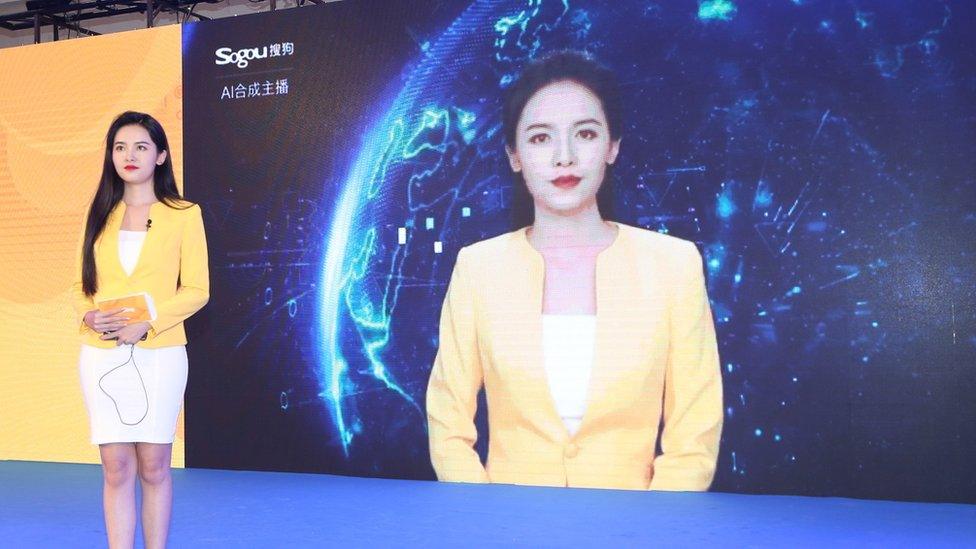AI reads books out loud in authors' voices
- Published

Yanny, an avatar developed by Sogou, was debuted as the company announced its plan for AI novel-readers
Chinese search engine Sogou is creating artificial-intelligence lookalikes to read popular novels in authors' voices.
It announced "lifelike" avatars of Chinese authors Yue Guan and Bu Xin Tian Shang Diao Xian Bing - created from video recordings - at the China Online Literature+ conference.
Last year, Sogou launched two AI newsreaders, which are still used by the government's Xinhua news agency.
Appetite for audiobooks in China is on the rise, mirroring trends in the West.
'Professionally narrated'
Chinese think tank iiMedia expects the market to more than double between 2016 and 2020, to 7.8bn Chinese yuan (£900m) a year.
It is now a simple process to use text-to-speech technology to quickly generate an audio version of a book, using digitised, synthetic voices.
But most people prefer audiobooks that are "professionally narrated" by authors, actors or famous public figures.
And now, advances in machine learning and speech-to-text technologies mean that digitised voices are becoming more lifelike.
For example, the company Lyrebird allows clients to create custom "vocal avatars" from just a one-minute recording of their voices.
On its website, it showcases its services with two audio recordings, external of former US President Barack Obama and current US President Donald Trump, created using machine learning.
Meanwhile, London-based tech start-up DeepZen says its synthetic speech technology can create multiple versions of an audiobook within hours, cutting down time and costs by an estimated 90%.
- Published12 August 2019

- Published24 May 2019

- Published18 April 2018
